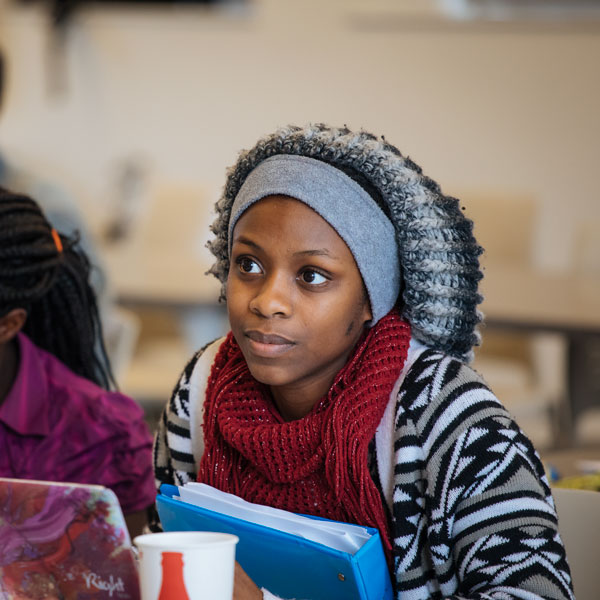This website uses cookies. Find out more in our Privacy Policy.
The field of religious studies focuses on the attempt to understand the world’s religions as expressive of what various peoples have come to regard as sacred.
This major is interdisciplinary, pluralistic, critical and global in its outreach and aspirations.
While the department’s concern for the sacred has been shaped by the cultural traditions of Christianity, religious studies assumes that the study of Christianity, like the study of any other religious tradition, is best undertaken on the basis of a broad and comparative understating of all the world’s major religions. Thus, in addition to courses focused on Christianity and critical studies of the Bible, the department offers opportunities to investigate the distinctive beliefs, practices, sacred literatures and cultural expressions of Judaism and Islam, the religions of Asia and Native American religions.

Students majoring in religious studies typically acquire a broad and comparative understanding of the world’s religions by taking courses in all four major areas of the curriculum: Sacred Texts and Traditions, World Religions, Religious Thought and Social Context and Special Studies in Religion. You'll learn:
Atlanta is a tremendous teaching and learning resource for religious studies students. Because of its own recent dramatic development at the cutting edge of the processes of globalization, the metropolitan area has become a working laboratory for studying the diversity of religious communities, beliefs and practices. Courses in this department typically include opportunities for fieldwork where students gain firsthand experience of how religious traditions are being renewed and transformed in these communities. In addition, the department offers significant opportunities for collaborative research with fellow students and faculty, colleagues and resource persons based at other Atlanta colleges and universities and the religious communities.
Religious studies is not the only department at Agnes Scott in which the ideal of learning community is honored by both faculty and students. However, the department has always striven to be among the most innovative and dedicated in seeking to make this ideal become a living reality. Some of its routines, such as the semi-annual departmental retreats, the departmental dinners opening and closing each semester, the ways in which students are empowered to participate in departmental decision-making regarding curriculum and academic policies and the many opportunities for community outreach work, remain uncommon and innovative.
Many religious studies students are involved in on-campus clubs and organizations, such as the Canterbury Club for Episcopalians, the Muslim Student Association, the Newman Club for Catholic Fellowship, New Life for Christian Fellowship, New Westminster Fellowship for Presbyterians, the Religious Life Council, the Spiritual Awareness Association, the religious studies honor society Theta Alpha Kappa, the Wesley Fellowship for United Methodists, WITKAZE, The Collective and others dedicated in various ways to the ongoing struggle for community and social justice.
A degree in religious studies opens many doors and career paths as you develop your knowledge in biblical literature and contemporary expressions of religious thought.
The world’s religions and their historic and future patterns of interaction are increasingly significant for understanding and responding to the issues of social justice occurring in a world undergoing the processes of globalization. Whether you follow a path of outreach or scholarship, or simply allow the different perspectives of world religions to inform your other professional contributions, the foundation of a religious studies major will prepare you for a life of meaningful work.